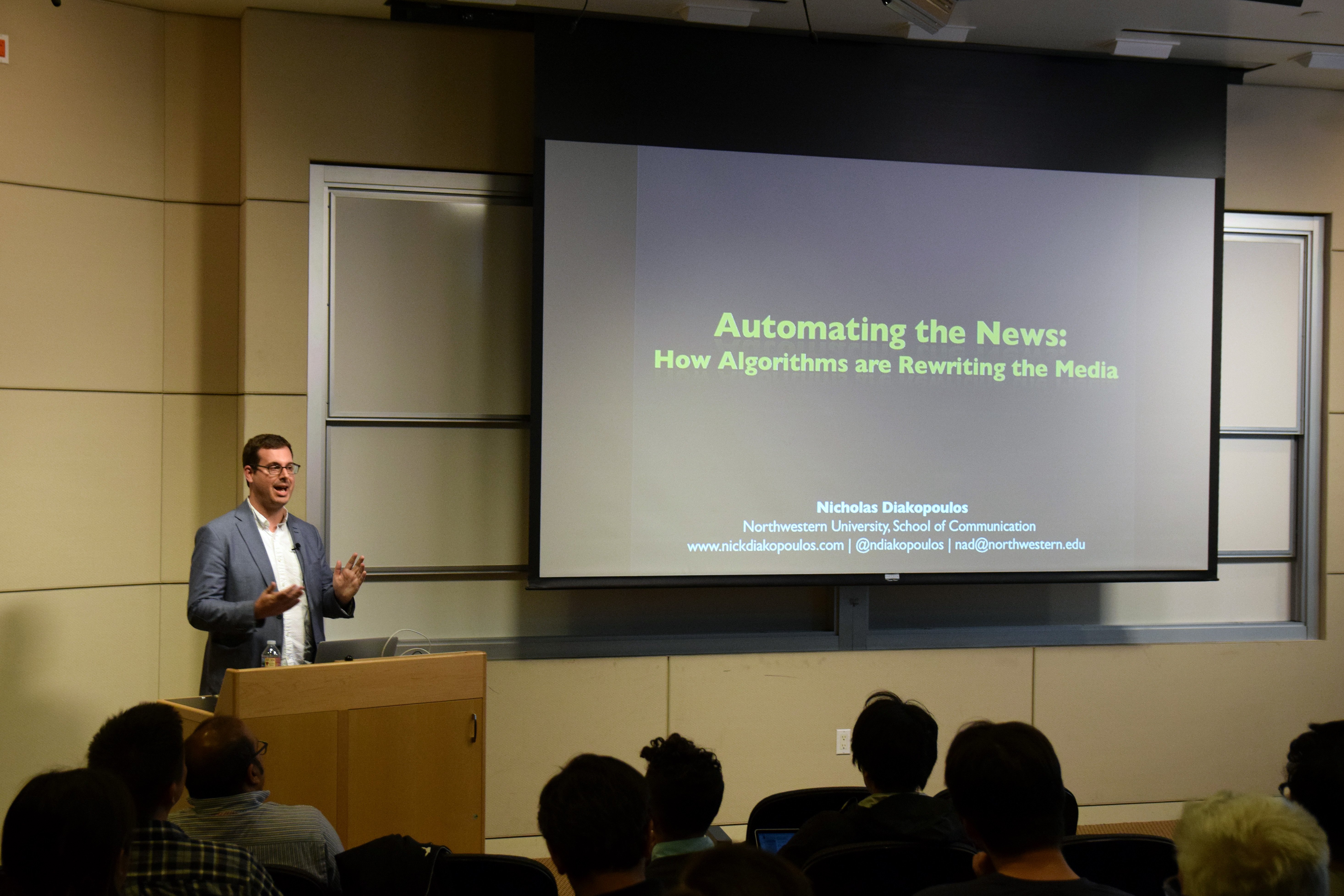In a Monday presentation on his forthcoming book “Automating the News, How Algorithms are Rewriting the Media,” Nicholas Diakopoulos spoke of the promise and the limitations surrounding the inclusion of algorithms in the journalistic process.
Diakopoulos explained the potential uses of automation in news, making sure to communicate that AI technology is still limited, albeit exciting.
“Full automation of news production is pretty tantalizing,” he said. “There are certainly some genuinely impressive things and helpful applications of AI that we should celebrate. They can enhance investigative journalism, they can create new interactive news experiences or news bots, it can optimize content, distribution on platforms, and it can generally enhance the scale, the speed and the efficiency, the breadth and the personalization of content.”
“Some might say it’s magical, but let me assure you, the magical AI fairy is not real,” he added.
Diakopolous emphasized the human beings behind the algorithms at these organizations. He noted the opportunity for organizations to promote their journalistic values by intentionally designing their algorithms.
“AI systems are tools, they’re built by people, to serve human needs and ends,” he said, “and so that makes them political. These types of data mining algorithms may come to influence the way journalists are covering these topics.”
The important decision facing news organizations, in Diakopoulos’ view, is how to curate the journalistic values they want to promote and then to design tools to support them. He sees this as an opportunity for journalists to “become aware of and start exercising their institutional values.”
Addressing the issue of how human journalists will interact with the use of AI, Diakopoulos focused on the opportunity for “hybridization,” the development of processes that involve the journalists and the technology. He has found that algorithms “often complement, but rarely substitute, an entire journalist.”
Economists find that only 15 percent of reporters’ time and 9 percent of editors’ time could be replicated by an algorithm, he added.
Diakopoulos sees an opportunity for new jobs at all skill levels in the news industry brought on by the development of AI, both in maintenance and the high level direction of AI projects. With regard to traditional journalists, he explains that journalists will have to adjust their skillset to the environment, but that they will be able to take advantage of the new tools to find stories from available information. He thinks that it is important that journalists are trained to take advantage of these tools.
“We need to think about educational models to up these different literacies for journalists,” he suggested, “We might imagine a doctorate of professional practice for computational journalism.”
He noted the potential for algorithms to shape the news they cover, and maintained that human participation was integral to the reporting process.
“As these types of automated systems come to be more adopted in practice, an important question is going to be how to assess how they impact the coverage of various types of stories,” he said. “I think journalists are going to need to become more cognizant of the ways that algorithms can divert attention in characteristic ways, and then be ready to fill in the gaps.”
Diakopoulos’ research centers on the connection
He concluded, “I think the future of algorithms really does need to be human centered.”
Contact Toby Frager at tobiasfr ‘at’ stanford.edu.
